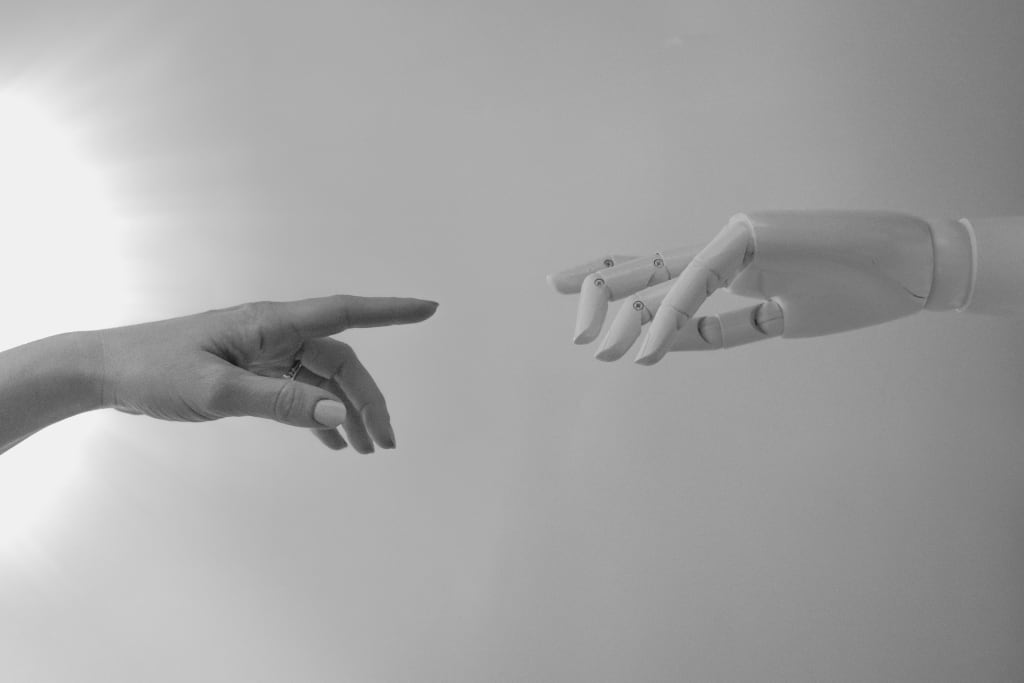The Rise of Artificial Intelligence
How AI is Changing Our Lives and Shaping the Future

Artificial intelligence (AI) has been a topic of discussion and fascination for decades, but in recent years, it has moved from science fiction to science fact. AI is transforming our lives in countless ways, from making our phones and homes smarter to revolutionizing the way we work and live. But as AI technology advances, it also raises important ethical and societal questions about its impact and the risks it poses.

From Smarter Siri to Self-Driving Cars: Exploring the Advancements and Implications of AI Technology

One of the most visible ways AI is changing our lives is through the use of virtual assistants like Siri, Alexa, and Google Assistant. These AI-powered tools allow us to easily access information, control our homes, and manage our schedules. In addition, AI is also being used to develop self-driving cars, which have the potential to greatly reduce accidents and improve traffic flow. However, with AI technology still in its early stages, there are also concerns about its impact on employment and privacy.

Another area where AI is making a significant impact is in the field of healthcare. AI algorithms can analyze vast amounts of medical data to help doctors diagnose diseases and predict outcomes more accurately. This has the potential to improve patient outcomes and reduce healthcare costs. On the other hand, AI's reliance on data and algorithms also raises questions about its ability to accurately reflect the complex nature of human health and its potential to perpetuate bias and discrimination.

AI Ethics and the Quest for Responsibility: Balancing the Benefits and Risks of Artificial Intelligence
As AI technology continues to advance, it is becoming increasingly important to address the ethical and societal implications of its use. AI has the potential to greatly improve our lives, but it also raises serious concerns about privacy, accountability, and control. To ensure that AI is developed and used responsibly, it is crucial to have a clear understanding of its potential benefits and risks and to have regulations in place to govern its use.
Benefits and Risks of Artificial Intelligence
Artificial intelligence (AI) has been hailed as the next great technological revolution, with the potential to transform our lives in countless ways. From improving healthcare and making our homes and workplaces more efficient, to creating new forms of entertainment and enabling self-driving cars, the benefits of AI are many and varied. But as with any new technology, there are also risks and challenges that need to be addressed.
Benefits of AI
One of the biggest benefits of AI is its ability to automate and streamline many tasks that are currently performed by humans. For example, AI algorithms can quickly process and analyze large amounts of data, making it possible to identify patterns and insights that would be impossible for humans to detect. This has the potential to greatly improve decision-making in a wide range of fields, from finance and healthcare to retail and manufacturing.
Another benefit of AI is its ability to enhance human productivity. By taking over repetitive and time-consuming tasks, AI allows us to focus on higher-level tasks that require creativity and critical thinking. For example, AI can assist with scheduling and managing emails, freeing up time for more important tasks.
Risks of AI
One of the biggest risks of AI is the potential for job displacement. As AI algorithms become more advanced, they may replace human workers in a variety of industries, leading to widespread unemployment and economic disruption.
Another risk of AI is its potential to perpetuate bias and discrimination. AI algorithms are only as unbiased as the data they are trained on, and if this data is biased, the algorithms will be too. This can lead to decisions that unfairly disadvantage certain groups and undermine social equality.
Finally, there are concerns about privacy and security with AI. As AI algorithms process and store vast amounts of personal data, there is a risk of data breaches and misuse of this information.
Conclusion
AI is a rapidly evolving technology with the potential to bring about significant benefits and improvements to our lives. However, as with any new technology, there are also risks and challenges that need to be addressed. To ensure that the benefits of AI are realized while minimizing its risks, it is crucial to have clear regulations in place and to continue exploring the ethical and societal implications of its use.

In conclusion, the rise of AI is transforming our lives in countless ways and shaping the future in exciting and profound ways. While its benefits are significant, it is important to address the ethical and societal implications of its use and to ensure that it is developed and used in a responsible and equitable manner.
About the Creator
Alperen Tandogan
I am very curious. I love learning and sharing. In my free time, I will share with you what I know and what I have learned on this platform






Comments
There are no comments for this story
Be the first to respond and start the conversation.